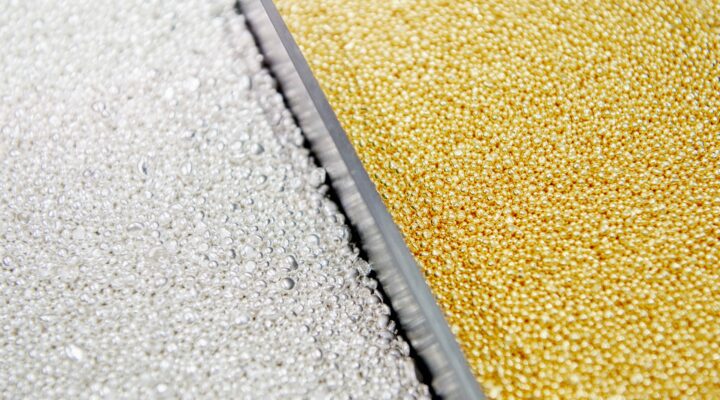Pandora’s recent announcement that it has shifted to using 100 per cent recycled gold and silver in its products is the latest example of the adoption of more sustainable practices in retail. This comes after Pandora announced the inclusion of ethical lab-grown diamonds into its core range in November last year. The world’s largest jewellery brand Pandora was founded in Copenhagen, Denmark, in 1982 and is now the world’s largest jewellery brand by volume. The business entered the Australia
Australian market in 2004 when Karin Adcock acquired the Australian licence for around $35,000. Adcock sold 60 per cent of the business back to Pandora Holdings in 2009 and the remaining 40 per cent when the company listed on the Copenhagen Nasdaq in 2010. Two years later, Adcock departed the business, which had a valuation of $200 million at the time.
Officially better for the environment
All of Pandora’s suppliers’ operations are certified recycled in accordance with the Responsible Jewellery Council Chain of Custody (RJC-COC), which is the highest industry standard.
Two of Pandora’s key suppliers are the world’s leading bullion brand, Swiss MKS PAMP, and Belgian circular materials technology company, Umicore. More than 40 of the brand’s suppliers had to make changes to their operations, predominantly around the segregation and documentation of their metals, for Pandora to meet its goal.
Over 100 Pandora employees were involved in ensuring the transition complied across all stages of the supply chain from the sorting, separating, melting and manufacturing of renewed circular pieces.
Now that the target has been achieved, Pandora is committed to maintaining its use of 100 per cent recycled gold and silver and improving the sustainability of the materials and processes it uses, as guided by the publicly available ‘Materials Standard’.
Pandora recycles its production surplus into new pieces and whilst there is no customer recycling exchange program currently in operation to create a closed circular sustainability loop, a spokesperson for the brand told Inside Retail that “it is of course on our radar, but we’ll have to see what happens in the coming years”.
By the second half of 2024, Pandora projects that it will be crafting only with its recycled inventory.
“Considering the scale of Pandora’s business, this is a notable achievement in the global jewellery industry,” a spokesperson said. “It is the result of several years’ intensive work to define the right operating model, engage closely with all our silver and gold suppliers and audit more than 40 sites to see who can meet our high standards.”
The switch has come at a substantial additional financial cost: using 100 per cent recycled silver and gold across the business costs an estimated additional US$10 million annually.
“We have had many positive responses from our suppliers who joined Pandora on this journey and can now offer certified recycled silver and gold to even more companies,” the spokesperson said.
Pandora reached its target of switching to 100 per cent recycled precious metals two years early.
At the time the brand set the goal in 2020, Pandora jewellery was crafted from 71 per cent recycled materials. Last year, that number was 97 per cent. The carbon footprint of using only recycled silver is one-third of the size of using mined silver, and the switch to recycled gold produces a mere 1 per cent of greenhouse gas emissions that mined gold does.
To put this into perspective, using only recycled metals saves the equivalent amount of CO2 emissions as the annual electricity usage of 11,000 homes, or driving 6,000 petrol cars around the world.
Silver is the main metal used in most Pandora pieces and over 80 per cent of the world’s silver supply is sourced from mining, an alarming statistic given precious metals such as silver and gold can be recycled and repurposed infinitely without any compromise on quality.
Recycled metals trending
Pandora isn’t the only global jewellery brand that has embraced recycled metals. Canadian-based e-commerce jewellery brand Mejuri makes its pieces out of 95 per cent recycled gold and 5 per cent newly mined gold, including its 14-karat gold and 18-karat gold vermeil ranges.
Mejuri states this is a conscious decision to reduce its environmental impact and still support local communities reliant on mining, and it confirms that there is no difference in the quality of recycled and newly mined gold.
Meanwhile, the Australian brand Francesca Jewellery was founded by sisters Hannah and Rachel Vasicek on the belief that “success means nothing unless you’re giving back”.
The brand partners with charities to raise awareness and has donated close to $1 million to Australian charities in the past six years. In addition to this, 1 per cent of Francesca employees’ working hours is pledged to volunteering within the community.

